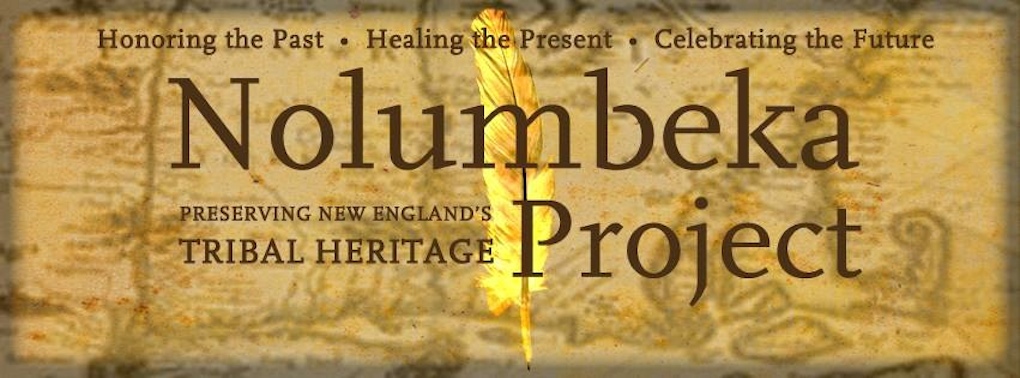The process of digitalizing the extensive research library compiled by Nolumbeka Project Senior Researcher/Anthropologist Howard Clark is underway through the financial support of the Community Foundation of Massachusetts, Credit Data Services Inc. Fund, and the Board Discretionary Grantmaking Fund. Clark has collected and organized well over 50,000 pages of documents, books, and maps in an effort to promote a clearer and undistorted understanding of the history and culture of the Native Americans of New England.
To assist with the digitization of this unique collection, The Nolumbeka Project has hired an Archival Consultant who specializes in archive restoration to serve as adviser for the project. The grant also funded the purchase of an Epson 10,000 XL scanner. Although the collection and equipment are currently housed in a temporary location, we hope to secure a more adequate and permanent space in the future.
At this point we continue to welcome donations and loans of additional books, documents, photos, etchings, maps and artifact collections related to the tribes of the Northeast for digitization. We also seek books and materials on local history and colonial records of Massachusetts, Maine, Vermont, New Hampshire, Connecticut, New York (including New Netherlands documents) and Rhode Island. And, last but not least, at this point we need good solid wood bookcases.
The Importance of the Nolumbeka Project Archive Preservation
by Howard Clark
How can we gain a more enlightened view of history? Sometimes we can rely on the work of those historians who came before us. Sometimes, however, we must challenge the views presented, separating the authors and their particular biases from the facts presented in the original documents. We then have to dig even deeper to try to discover the motives underlying the creation of the original documents themselves.
As we seek to develop a fresh look at the the events that occurred as the European colonists encountered those whose ancestors had lived here for over ten thousand years, it is important, even crucial, to broaden our view to include the original accounts of those who witnessed these events separately. We must include the observations of individuals from neighboring towns and colonies, and the views of those who had a different perspective on the native population at that time.
If we open our minds to this broader body of information, we realize there are significant problems with many of the books written on the history of the Northeast. We come to see that the history taught to us in school presented a tragically distorted and incomplete account. We come to see that these narratives were drawn solely from records obtained from individuals, towns, or colonies who sought to justify acquiring land and other abuses toward the tribes as they used practices and "laws" that would have been deemed inappropriate or illegal in their homeland. These abuses were so blatant that England rewrote colonial laws concerning the acquisition of Native lands in 1665 seeking to make it clear that the land had to be bought or given before the it could be legally acquired “though it be improved or not”. Yet, the systematic expulsion of the Native American population continued.
If you follow of the actions of land speculators of that era, their positions, interconnections and lack of transparency toward England through the web of original documents and then include the observations of these same events by residents of Rhode Island and New York, including material by Roger Williams, John Easton, and the Quaker community, it becomes obvious that the Pequot War and King Philips War which decimated the Native American population in our region were neither random events or inevitable cultural conflicts. Although characterized as “Just Wars” against the threat of attack in the narrative we learned in school, it becomes clear that pre-emptive strikes such as the 1675 attack against the Narragansett Tribe were orchestrated by a number of major players in a series of land grabs and power struggles between competing colonies. As we broaden our view, we encounter an intricate web of carefully planned campaigns to satisfy a greed for financial gain and the expansion of colonial power. It is important that this story be told.
The purpose of the Clark-Nolumbeka Archive is to develop and share a clearer and less distorted account, a more enlightened view of the time of contact between the two cultures in that era as we continue to acquire and make more generally available material drawn from original sources. In this effort, we are especially interested in obtaining additional records of the Northeast in the period from 1498-1620, including those related to colonization and the oral traditions of the tribes themselves. We hope you’ll assist us in our efforts.

